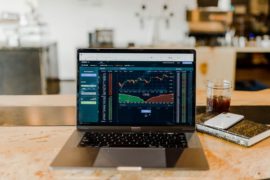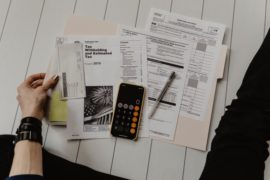Last Updated on Nov 19, 2020 by James W
In case you don’t know, the forex market is an entity that allows traders to buy and sell currencies or speculate on the price trajectory of specific pairings.
This market is one of the most popular financial entities of its type in the world, with an estimated $6.6 trillion traded globally every single day.
Known for its derivative nature and inflated leverage, it’s possible to trade large forex positions with a minimal deposit and without having to assume ownership of the underlying financial asset. In this post, we’ll look at the do’s and don’t of forex trading as you look to enjoy a profitable journey!
The Do’s! Knowledge, Determinism and a Strategic Plan
Let’s start with the basics; as you cannot hope to become a successful forex trader without knowledge of the marketplace and a keen sense of determinism.
These two entities often go hand-in-hand, as theoretical knowledge enables you to understand the currency market and the underlying laws that govern change, creating a scenario where you can make informed decisions and avoid emotive transactions.
By developing a broad base of knowledge (particularly of the forex trading lifecycle) and a sense of determinism, you can also lay the foundations for your core trading strategy.
This is also incredibly important, as developing a forex trading strategy and honing this through an online demo account helps to bridge the often sizable gap between theoretical knowledge and practical experience (without requiring you to risk your hard-earned capital).
As a newcomer to this market, you also need to understand its inherent volatility and the role that leverage can play in driving significant losses in the worst-case scenario.
This should encourage you to start small and trade just one or two currency pairings as you begin to commit your capital, before looking to scale your efforts in line with experience and profitability over time.
OK – But What About the Don’t?
When it comes to the don’ts of forex market trading, the single most important consideration is that you don’t underestimate the volatility of the foreign exchange.
This is particularly true in the event of a failed or loss-making trade, as this can often impact on your decision making and encourage you to open up more ill-judged and impulsive orders.
On a similar note, it’s crucial that you avoid implementing trades without deploying viable risk management tools where appropriate. This is especially important as a novice trader, with popular tools such as stop losses enabling you to automatically close positions once they’ve incurred a predetermined level of loss.
This enables you to realise the full value of the 24-hour forex market, without requiring you to monitor trades and trends continuously.
On a final note, you should strive to avoid setting unrealistic expectations as a forex trader, especially when you consider the volatile and derivative nature of the market.
Instead, try to establish manageable goals in line with your budget and risk portfolio, in a bid to create the ideal balance between risk and reward at all times.




